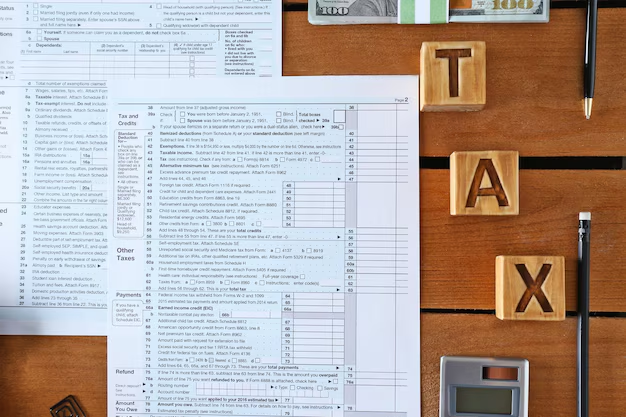When Will the IRS Begin Accepting Tax Returns in 2024? Your Comprehensive Guide
Each year, taxpayers wait with bated breath for the Internal Revenue Service (IRS) to announce the beginning of the tax filing season. If you’re someone who wants to get a jump on your tax return to either cross it off your list or get that refund quicker, you're likely wondering: When is the IRS accepting tax returns for 2024? This article not only answers that pivotal question but also delves into various aspects surrounding tax filing, ensuring you’re well-prepared for the upcoming season. Let's dive in!
The Expected Opening Date for IRS Tax Return Acceptance
Understanding when the IRS begins accepting tax returns each year hinges on both historical trends and logistical preparations. Typically, the IRS announces the official start date of the tax season in December or early January, with the opening for electronic filing often occurring in late January. For 2024, while the exact date hasn’t been officially announced at the time of writing, you can expect a similar timeframe. Ensuring that you've prepared correctly before this period kicks off may lead to a smoother processing and quicker refund.
Factors Influencing the Start Date
- IRS Readiness: Technological updates and procedural changes can influence the start date.
- Tax Law Changes: Any late-in-the-year legislation affecting tax policy might delay the opening.
- Calendar Considerations: Weekends and public holidays can also impact this schedule.
Why Filing Early Might Be a Smart Move
Filing early can be beneficial for several reasons, and knowing when to file your tax return—especially at the start of the season—is key. Here’s why you might consider joining the early filers' club:
Advantages of Early Filing
- Quick Refunds: The sooner you file, the sooner you get your refund. Delays are common as deadlines inch closer.
- Prevention of Identity Theft: Filing early reduces the chance of fraudulent tax return filings using your identity.
- Ample Time for Corrections: Early filing leaves plenty of time to fix errors before the April deadline.
Steps to Prepare for Tax Season
In light of the upcoming tax season, preparation is your best ally. Engaging in early planning will streamline your filing process and potentially save you from stress. Here are crucial steps you can take right now:
Gather Necessary Documentation
Ensure you have all the necessary documents, such as:
- W-2 Forms from current employment
- 1099 Forms for other sources of income
- Receipts and Statements for deductibles like mortgage interest, educational expenses, and medical costs
Use Tax Preparation Software
Investing in trustworthy tax software can cure plenty of headaches. These tools typically provide:
- Easy Data Import: Import previous year's data and make the necessary updates.
- Guided Assistance: Step-by-step guidance to ensure nothing is missed.
Double-Check Your Information
Cross-examine all details, including Social Security numbers and bank account info, to prevent delays caused by errors and omissions.
Addressing Common Concerns About Filing Taxes
Understanding other important aspects of tax filing can provide peace of mind and improve your tax responsibility. Here we address some frequently asked questions and their related exploratory themes.
Do I Have to File Taxes?
Whether you’re required to file taxes depends on several conditions such as your income level, filing status, and age. Generally, if your annual income exceeds a certain threshold, a tax return is mandatory.
What If I Miss the Deadline?
Missing the IRS filing deadline can lead to penalties, although the specific consequences depend on your situation. Here's what you should do if you anticipate missing it:
- File for an Extension: This grants an extra six months to submit your tax return.
- Estimate and Pay Any Taxes Owed: Even if you file for an extension, ensure you estimate your taxes and pay at least 90% by the April deadline to avoid penalties.
How Do I Choose Between Standard Deduction and Itemized Deduction?
Choosing between standard deduction and itemized deduction can impact your taxable income significantly. Consider the following:
- Standard Deduction: A no-questions-asked deduction amount predefined by the IRS.
- Itemized Deduction: Requires reporting specific expenses like charitable donations and medical costs that exceed certain limits, potentially offering greater savings than the standard deduction.
Making Your Tax Return Work for You
Now that you know when the IRS might be accepting tax returns and the benefits of filing early, it’s also important to consider strategizing for a more efficient tax return outcome.
Maximizing Refunds and Minimizing Liabilities
- Contribute to Retirement Accounts: Contributions to accounts like an IRA can be tax-deductible.
- Claim Tax Credits: Ensure you’re claiming all applicable credits such as the Earned Income Credit or Child Tax Credit.
- Keep Current on Tax Laws: Stay informed about any tax changes that can create more opportunities for deductions.
Here's a quick summary of practical tips to keep you on track:
- ⏳ Start Early: Begin gathering documents before the IRS announces the date.
- 🔍 Double-Check Everything: Avoid errors that can delay refunds.
- 🤝 Consider Professional Help: Enlist a tax professional if your situation is complex.
- 💼 Maximize Opportunities: Know all possible deductions and credits available to you.
Ensuring a Smooth Filing Season
By understanding even the most subtle intricacies of tax filing, including knowing when the IRS will start accepting tax returns, you equip yourself to handle the season’s demands efficiently. Anticipate the IRS’s announcement, prepare all your materials, and set yourself up for a seamless, stress-free filing experience. Stay informed, stay prepared, and get ahead in 2024 while possibly enjoying the bonuses of early filing. Happy taxing!

Related Topics
- Am I Tax Exempt
- Are 401k Contributions Tax Deductible
- Are 529 Plan Contributions Tax Deductible
- Are Attorney Fees Tax Deductible
- Are Campaign Contributions Tax Deductible
- Are Charitable Donations Tax Deductible
- Are Church Donations Tax Deductible
- Are Churches Tax Exempt
- Are Closing Costs Tax Deductible
- Are Contributions To 529 Plans Tax Deductible
